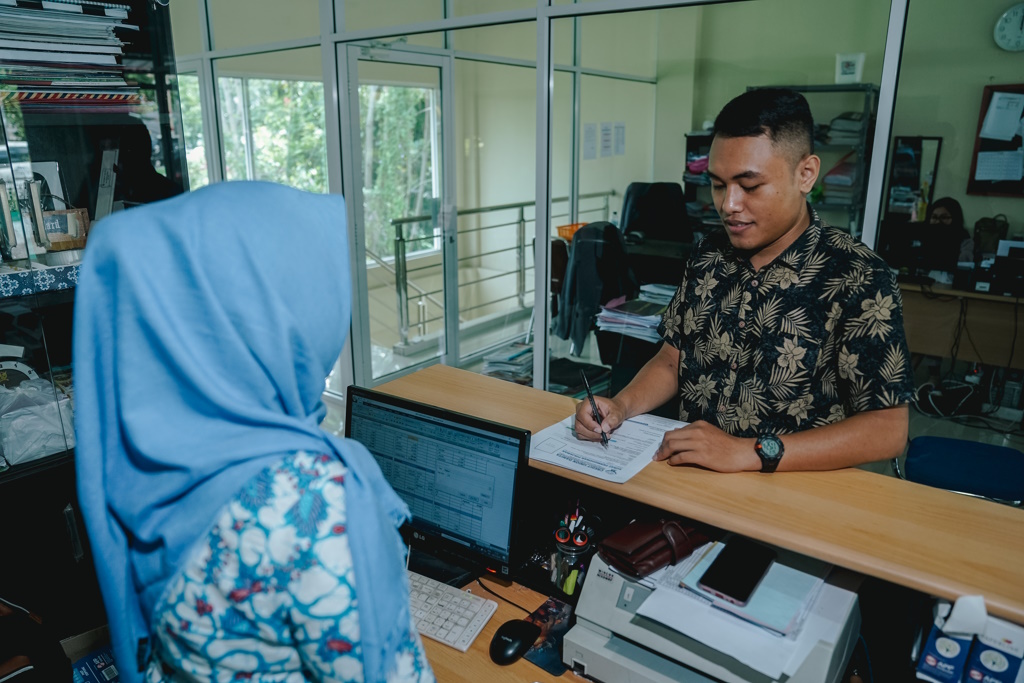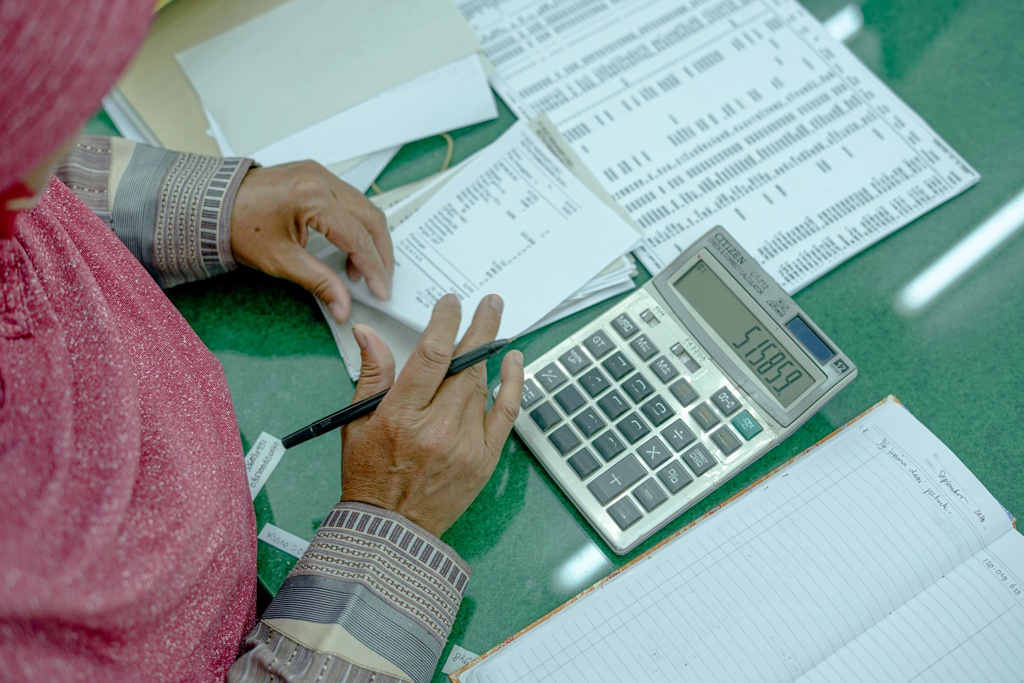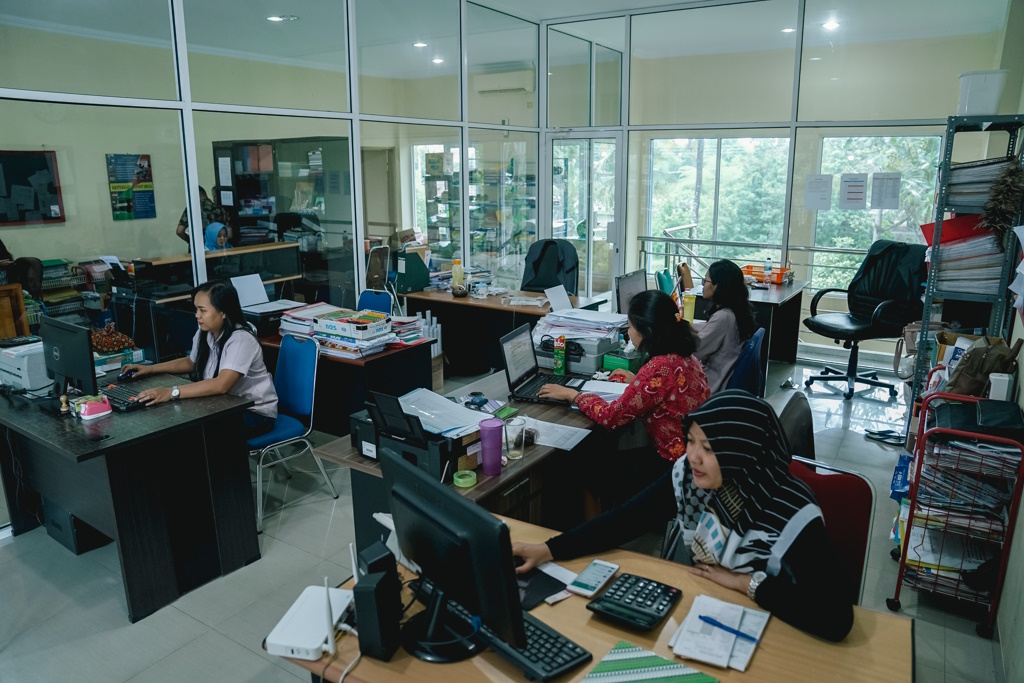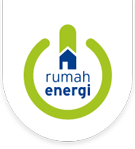Exploring the Potential of Cooperatives as Agents of Change in Addressing the Climate Crisis through the Green Cooperative Project

Indonesia is one of the countries experiencing the real impact of climate change. The Low Carbon Development Indonesia (LCDI) report states that the increase in the number of disaster events that have occurred in Indonesia is closely related to the impact of climate change in the past ten years (2011 – 2021), in which this number is dominated by hydrometeorological hazards. This is supported by data from the National Disaster Management Agency (BNPB), which reports that 98.1% of disaster events in Indonesia are caused by extreme meteorological and climate events. Hydrometeorological disasters themselves do not only cause casualties but also have an impact on the environment and economic losses (LCDI, 2022).
Floods, droughts, forest fires, poor air quality, decreased agricultural production, drought, rising temperatures, and damage to coral reefs due to rising sea temperatures and rising sea levels which have an impact on communities in coastal areas are examples of hydrometeorological disasters that have occurred in Indonesia. Apart from that, according to a report published by the Center for Data and Information (Pusdatin) of the Ministry of Environment and Forestry, in 2021, Indonesia’s total GHG emissions will reach around 2,055.15 million tons of CO2 equivalent. The largest emissions come from the energy sector, which is around 915.87 million tons of CO2 equivalent, followed by the land use change and forestry sector, which is around 714.18 million tons of CO2 equivalent.
With the various impacts of climate change, prevention, and adaptation actions need to be taken. Funding is an important factor in achieving that goal. Climate change funding in Indonesia is still relatively low when compared to the magnitude of the challenges faced by the country in overcoming climate change. However, the Indonesian government and financial institutions have begun to pay increasing attention to climate change finance in recent years. However, most of the climate change funding in Indonesia is still sourced from abroad and is not sufficient to meet the huge need to tackle climate change in Indonesia. Therefore, further efforts are needed from the government, financial institutions, and the private sector to increase climate change funding in Indonesia.
The impact of climate change is widely felt by rural communities in Indonesia. This is in line with the characteristics of Indonesia which is still dominated by the agricultural sector in rural areas. The involvement of cooperatives in climate change funding is based on the large number of cooperatives in Indonesia, the majority of which involve rural communities. In the report “Statistics of Indonesian Cooperatives and MSMEs 2019” published by the Ministry of Cooperatives and Small and Medium Enterprises, it is stated that around 80% of cooperatives in Indonesia are engaged in the agricultural and plantation sectors, the majority of whose members come from rural areas. The Ministry of Cooperatives also reported that in September 2021 there were around 3.9 million cooperatives registered in Indonesia, with around 87.7 million members.

Furthermore, the Ministry of Cooperatives and SMEs of the Republic of Indonesia said that the contribution of cooperatives to the gross domestic product in 2022 is 5.3%. In addition, cooperatives are also institutions whose access reaches the grassroots level, especially in rural areas. Therefore, cooperatives are the right vehicle to be involved in climate change funding. However, new sustainable finance arrangements are set for Bank Financial Institutions and Non-Bank Financial Institutions under the Financial Services Authority where cooperatives do not yet have the same regulations. Climate change funding is broadly interpreted as funding aimed at reducing carbon emissions and vulnerability to the negative impacts of climate change on humans and ecological systems.

Referring to this issue, Yayasan Rumah Energi (YRE) is supported by the ClimateWorks Foundation implementing the Green Cooperative Project to encourage cooperative involvement in financing climate action. The specific objectives of this project are to build stakeholder awareness of the gap in sustainable funding, as well as climate change funding, and build knowledge of the potential for cooperatives in Indonesia to fill the climate change funding gap at the grassroots level. For this reason, cooperatives need to develop their potential through the implementation of Environmental, Social, and Governance (ESG) policies. To achieve these goals, it is necessary to have regulations or foundations and guidelines that will provide space and ability for cooperatives to act as “agents of change”. Therefore, the Green Cooperative Project will focus on preparing “policy papers” and “operational guidelines”.

